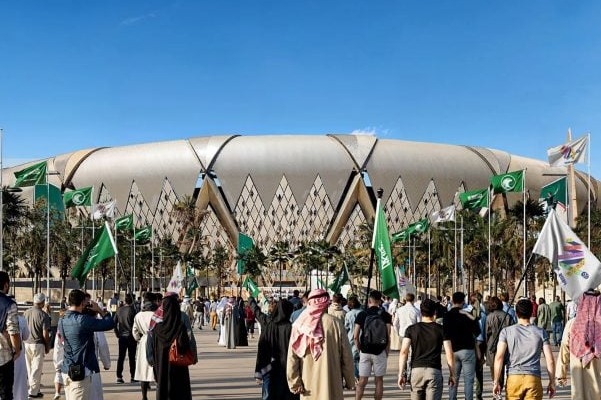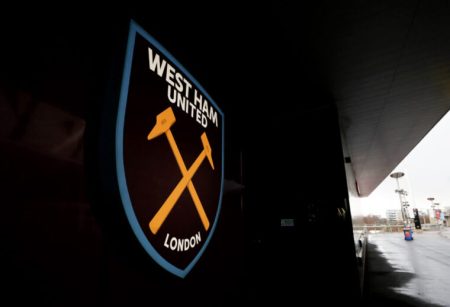Strictly Dry: A New Chapter for the World Cup in Saudi Arabia
Prince Khalid bin Bandar Al Saud, the Saudi Arabian ambassador to the UK, has made a significant announcement regarding the 2034 FIFA World Cup: the tournament in Saudi Arabia will be entirely alcohol-free. This decision marks a stark departure from past World Cups, where alcohol was a staple of the fan experience. The ban will be comprehensive, extending to stadiums, hotels, and fan zones, with no exceptions. Soft drinks will be the only beverages available for purchase and consumption. The prince’s statement emphasizes the nation’s commitment to maintaining its strict Islamic laws and cultural values, stating, "Plenty of fun can be had without alcohol. It’s not 100 per cent necessary and if you want to drink after you leave, you’re welcome to, but at the moment we don’t have alcohol." This approach reflects a broader commitment to preserving Saudi Arabia’s unique identity while hosting a global event.
A Cultural Standpoint
The prince’s comments highlight the importance of cultural boundaries in Saudi Arabia. He told LBC radio, “There is no alcohol at all, rather like our weather, it’s a dry country. Everyone has their own culture. We’re happy to accommodate people within the boundaries of our culture but we don’t want to change our culture for someone else.” This stance underscores the nation’s desire to host the World Cup on its own terms, without eroding its traditional values. While this decision may seem restrictive to some, it is a testament to Saudi Arabia’s commitment to cultural integrity and the principles that guide its society. The prince further emphasized that the 2034 World Cup is a global event and that the country welcomes all who wish to attend, reinforcing the idea that while the event is a celebration of football, it is also an opportunity to showcase Saudi Arabia’s heritage and way of life.
Comparisons with Qatar
The 2022 World Cup in Qatar, a neighboring Muslim nation, saw a different approach to alcohol consumption. Fans were permitted to drink at hotels that had secured liquor licenses, providing a controlled environment for those who wished to partake. However, Prince Khalid’s confirmation that Saudi Arabia will not follow this model has drawn comparisons and criticism. Some supporters, like Tim Bailey, have expressed their frustration on social media, commenting, "Their country, their rules. But why the f*** would anyone want to go there anyway?" Another fan remarked, "Weird . . . they always want everyone else to change their culture for them." These reactions highlight the differing expectations and cultural norms between Saudi Arabia and other host nations, as well as the potential challenges in accommodating a diverse international fan base.
Human Rights Concerns and Sportswashing
Saudi Arabia’s bid to host the 2034 World Cup has not been without controversy. The country has been frequently accused of using sports as a means to "sportswash" its image and distract from its poor human rights record. In 2023, when Saudi Arabia launched its World Cup campaign, a diplomatic source told The Sun: “Football fans will be allowed to drink if Saudi Arabia wins the vote. It has not been publicly discussed but is an accepted fact. Alcohol is subject to a total ban now but will be sold in restricted areas — as is the case in other Muslim nations.” However, the recent confirmation from Prince Khalid suggests a more firm and unyielding stance. The kingdom has acknowledged past mistakes and is making efforts to improve its international image, but the alcohol ban remains a significant sticking point for many who are critical of the country’s human rights record.
The King Salman Stadium: A Beacon of Modernity
Despite the controversies, Saudi Arabia is moving forward with ambitious plans to build state-of-the-art facilities for the 2034 World Cup. The King Salman Stadium, a key venue for the tournament, has been described as a "germinating seed" and will have a capacity of 92,000 spectators. New pictures of the stadium have been released, showcasing its futuristic design and advanced features. This project symbolizes Saudi Arabia’s investment in infrastructure and its vision to host a world-class event. The stadium’s design and construction are part of a broader plan to modernize the country’s sports facilities and provide a memorable experience for athletes and fans alike, albeit within the cultural and legal framework of the nation.
A Global Event with Local Rules
The 2034 World Cup in Saudi Arabia will undoubtedly be a unique experience for fans and participants. While the absence of alcohol may be a point of contention, the tournament offers the opportunity to witness a different cultural perspective and the potential for innovative and engaging fan experiences. Prince Khalid’s assurance that there will be plenty of fun without alcohol suggests that Saudi Arabia is committed to providing an enjoyable and safe environment for all attendees. The event will test the ability of the global football community to respect and engage with a host nation’s cultural norms, fostering a dialogue between tradition and modernity. As the world prepares for this landmark event, the focus will be on how these new rules and cultural boundaries are navigated to ensure a successful and harmonious tournament.











